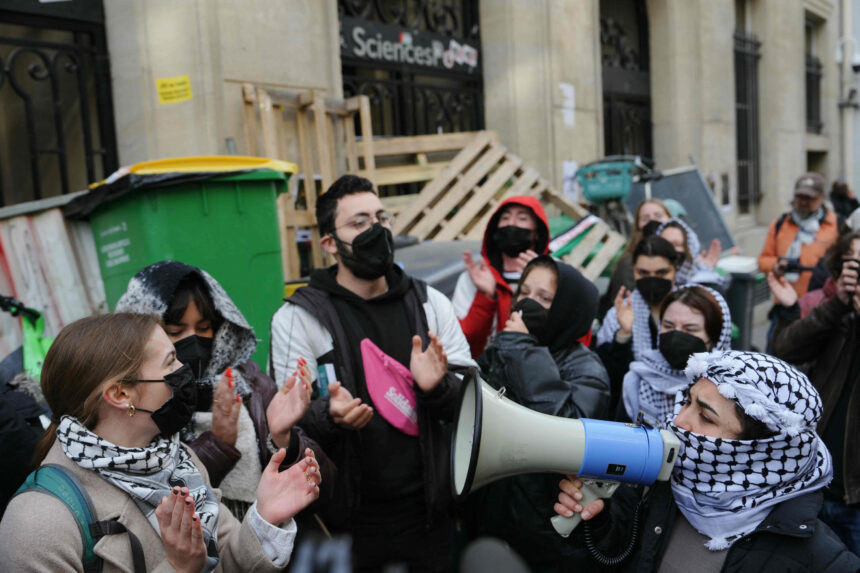Reports of antisemitism in Canada have reached record highs, with communities facing mounting threats and targeted violence. In 2024, Jewish Canadians were targets in over 5,700 incidents, a 109% increase from the previous year.
Harassment, vandalism, arson attacks, and bomb threats have left many feeling unsafe in schools, synagogues, and public spaces.
Jewish life in Canada has long thrived, shaped by deep history and vibrant culture. That legacy is now at risk. Recent high-profile incidents and statistical surges have created a climate of genuine fear and uncertainty. The impact is clear—rising hostility is changing daily life for many, and urgent action is needed to address the new risks facing Jewish communities across the country.
Understanding Canada’s Jewish Community in 2024
Canada’s Jewish community has a long and active history, with strong ties to cultural and civic life nationwide. In 2024, this community remains one of the largest Jewish populations outside Israel and the United States. Recent headlines have focused on growing threats, yet the depth, diversity, and achievements of Canadian Jewry highlight both its strength and ongoing challenges.
Demographic Profile and Community Diversity
Canada is home to the world’s fourth-largest Jewish population, numbering close to 400,000 people as of 2024. The majority live in urban centres:
- Toronto hosts the largest community, followed by Montreal and Vancouver.
- Jewish Canadians also live in cities like Ottawa, Winnipeg, Calgary, and Halifax, but in smaller numbers.
Community diversity is significant. Most Canadian Jews identify as Ashkenazi, with roots in Eastern and Central Europe. There is also a sizable Sephardic community, primarily based in Montreal, with origins in North Africa and the Middle East. This diversity extends to language and heritage, as some families speak Yiddish, Russian, Hebrew, or French at home.
Religious practice also varies:
- Orthodox, Conservative, and Reform Judaism are present in most cities.
- Many belong to unaffiliated or secular groups, focusing on culture and community events rather than worship.
Jewish Canadians contribute to business, education, healthcare, and the arts. Their presence is visible in schools, universities, and public life, reflecting high levels of integration and civic participation. Detailed demographic statistics can be found through organisations such as the Jewish Policy Research Institute (JPR: Jewish Population In Canada) and country-specific profiles (World Jewish Congress: Community in Canada).
Historical Roots and Resilience
Jewish history in Canada dates to the 18th century. Early Jewish settlers arrived in Montreal from Europe and the Caribbean, establishing small but determined communities. The late 19th and early 20th centuries saw large migration waves as Jews fled persecution in Russia and Eastern Europe. These new Canadians built synagogues, schools, and mutual-aid societies that became part of the city fabric.
During the Second World War, Jewish residents and leaders spoke out against Nazi persecution. After 1945, Holocaust survivors and their families became an essential part of Canadian Jewry, shaping the next generation’s identity and values. In later decades, Jews from North Africa, the Middle East, and the former Soviet Union added new languages, traditions, and perspectives.
Community leaders such as Samuel Bronfman and Irwin Cotler played key roles in national affairs, advocating for minority rights and Holocaust education. Today, the community marks its history during national events such as Canadian Jewish Heritage Month (Canadian Jewish Heritage Month 2024), which acknowledges contributions to public life, science, sports, and social justice.
Despite periods of open discrimination—including restrictive immigration quotas and social exclusion—the Jewish community in Canada built networks of support to overcome barriers. These efforts persist in combating prejudice and promoting dialogue both within and outside the community. Ongoing recognition by government officials and cultural bodies continues to highlight Jewish achievements and contributions (Statement by Minister Khera and Special Envoy Lyons).
The story of Jewish life in 2024 is one of diversity, civic engagement, and community leadership, set against the backdrop of historic adversity and modern-day pressures.
The Surge in Antisemitic Incidents: Trends and Manifestations in 2024
Antisemitic incidents across Canada reached a record high in 2024. Jewish communities in major cities saw an increase in hate crimes, targeted violence, and widespread fear. Data reflects a continuing pattern of threats and attacks that disrupt daily life and erode feelings of safety for Jewish Canadians. This section outlines prominent trends and offers a closer look at how these events play out across different spheres.
Hate Crimes, Violence, and High-Profile Attacks
Attacks on Jewish institutions have intensified in Canada’s largest cities. Toronto, Montreal, and Vancouver all reported significant incidents targeting synagogues, schools, and businesses.
- In Toronto, Jewish institutions faced repeated threats. Reports cited firebombings and acts of vandalism against synagogues, as well as graffiti on community centres and school walls. Toronto Police data showed that nearly one in five hate crimes targeted Jewish residents, a statistic that highlights the community’s heightened exposure (Antisemitism in Canada Report – Gov. of IL).
- In Montreal, over 130 antisemitic hate incidents were recorded between October 2023 and the end of January 2024. Several cases received national press, including a firebomb attack on a day school and acts of intimidation directed at Jewish-owned shops (Alarming Antisemitism in Canada).
- Vancouver’s Jewish institutions also reported spray-painted threats, shattered windows, and online agendas urging harassment. Community leaders described a “pattern of escalation” that has left local families unsettled.
The League for Human Rights’ annual audit confirmed that 2024 saw the highest number of antisemitic incidents in Canadian history. These ranged from property damage to physical assaults and arson (Annual Audit of Antisemitic Incidents – League For Human Rights). Each attack fuelled fear, with repeated events reinforcing the perception that Jewish sites are prime targets.
Online Hate, Media Narratives, and Campus Hostility
Digital platforms have become a catalyst for spreading hate. The volume of antisemitic content circulating on social media climbed sharply after October 2023, with spikes following major news events that involved Israel or Jewish figures.
- AI-generated fake imagery and doctored videos appeared across social networks, often distorting facts and reinforcing prejudice.
- Certain media reports adopted narratives that led to the scapegoating of Jewish individuals or organisations, sometimes without supporting evidence.
- Coordinated online campaigns targeted Jewish public figures and activists, flooding their accounts with threats and abuse.
University campuses experienced a rise in explicitly antisemitic incidents:
- Jewish students at multiple universities reported harassment, property defacement, and exclusion from campus groups because of their identity.
- At one Montreal campus, student groups openly praised acts linked to the Holocaust, drawing condemnation from national bodies (Heightened Antisemitism In Canada And How To Confront It).
- Reports cited a “chilling effect” on participation in university events, with some students staying home or hiding symbols of faith.
These trends indicate a mix of old prejudices and new digital tools. The result is a climate where hate speech is amplified, and in-person hostility carries over from the virtual world.
Community Fear and Perceptions of Safety
The spike in targeted attacks and hostile rhetoric has led to deep anxiety within Jewish communities. Surveys conducted after October 2023 found that a majority of Jewish Canadians now feel less safe in their neighbourhoods and public spaces.
- One nationwide poll found that around 70% of Canadian Jews feel “worried or very worried” about antisemitism.
- Almost half reported changing routines or avoiding Jewish sites and events for fear of attack.
- Community organisations noted increased calls for support, as parents worried about sending children to Jewish schools or attending synagogue.
The psychological toll is evident. Some families have installed security cameras at home and requested additional police patrols. There are reports of children hiding religious symbols at school and adults refraining from wearing identifying items in public.
Organisations monitoring hate crime have warned that this climate of fear is spreading, negatively affecting not just individuals but civic trust as a whole (2024’s peak of antisemitic incidents across Canada). The broader impact is an erosion of the sense of belonging that had long defined Canadian Jewish life.
Political, Institutional, and International Influences
Political and institutional choices play a major role in the experiences of Jewish people in Canada. The current wave of antisemitism is shaped not just by hateful individuals, but also by decisions made in government, law enforcement, and policy rooms—both at home and abroad. These influences set the direction for public debate, shape community responses, and can either strengthen or weaken the safety net that Jewish communities rely on.
Government and Law Enforcement Actions: National Forums, Security Measures, and Legislative Response
In 2024 and into 2025, federal and provincial governments increased public commitments to tackling antisemitism. National forums, such as the recent event hosted in Ottawa, brought together politicians, community leaders, and police organisations to discuss practical responses. Officials publicly condemned antisemitism and stated their intent to protect all Canadians from hate-driven threats (Government of Canada hosts National Forum on Combatting Antisemitism).
Law enforcement increased patrols near synagogues, schools, and community centres. Police in Toronto and Montreal added resources to hate crime units following high-profile attacks. In some areas, temporary security measures—such as the installation of surveillance cameras—were introduced.
On the legislative front, opinions remain divided. While some lawmakers call for new protections and stiffer penalties for hate crimes, others point to limitations in current laws and gaps in enforcement. Advocates stress that police response often falls short, especially in the aftermath of major incidents. Civil society groups continue to press government officials to translate statements into action, as many Jewish Canadians still feel vulnerable (The government must act now to stop the scourge of antisemitism).
At the same time, investment in Holocaust remembrance and education receives government support, with recent funding directed to awareness initiatives across the country (Government of Canada supports Holocaust remembrance). These efforts, while valuable, often compete with calls for broader anti-hate measures that address the present risks facing Jewish communities throughout Canada.
Political and Policy Debates: Israel, Anti-Zionism, and Institutional Challenges
Policy discussions about Israel and anti-Zionism have shifted sharply in Canada since 2023. Election debates and parliamentary sessions feature heated exchanges over government attitudes toward the conflict in the Middle East. The voices on both sides want to influence party policies, with direct consequences for the safety and standing of Canadian Jews (Groups push to shape election debate around Middle East conflict protests).
Notable controversies have arisen over the reconsideration of certain organisations’ charitable status, including the Jewish National Fund (JNF), due to activities linked to Israel. At the same time, arms export policy toward Israel faces intense scrutiny, with some groups calling for restrictions in the wake of violence abroad. These shifts create uncertainty within the Jewish community over the reliability of institutional support.
The debate over the International Holocaust Remembrance Alliance (IHRA) working definition of antisemitism remains active. Some political parties have adopted the definition, while others hesitate, arguing that it could limit legitimate criticism of Israeli government policy. The Canadian government references this standard in education initiatives, but widespread adoption is not universal (Canadian Handbook on the IHRA Working Definition of Antisemitism).
Institutional challenges go beyond parliament. University campuses, unions, and advocacy groups face pressure from activists on both sides of the Israel debate. Jewish leaders caution that anti-Zionist rhetoric, when left unchecked, often crosses into antisemitism. The result is increased tension and uncertainty about the limits of legitimate protest versus hate speech.
Global Trends and Historical Narratives: International Influence on Canadian Antisemitism
Global events have a strong impact on local realities for Jewish Canadians. Surges in antisemitic incidents in the UK, France, and the US have mirrored spikes in Canada, often following high-profile episodes of violence in the Middle East (UK, Canada Record Highest Ever Incidents Of Antisemitism in 2024). International media coverage, trending topics on social networks, and statements from foreign leaders all shape Canadian discourse.
Long-standing historical narratives influence this dynamic. Biases rooted in twentieth-century history still play out in Canadian society, echoing debates over Zionism, Palestinian rights, and Holocaust memory. The spread of anti-Israel rhetoric online—sometimes using language and tropes that echo past conspiracies—makes it harder to separate criticism of government actions abroad from broader hate directed at Jewish people.
International policy decisions and UN resolutions continue to fuel debate at home. Canadian Jews find themselves navigating not only the country’s political environment but also the impact of shifting diplomatic stances. This global interconnectedness increases the burden on Jewish communities to respond to developments that may occur thousands of miles away, yet have immediate local consequences.
The pressure of worldwide events, and the way they’re reflected in Canadian politics and institutions, shapes the current climate of uncertainty and fear that is now widely reported across the country’s Jewish population.
Pathways to Security, Solidarity, and Change
Addressing rising antisemitism requires action on many fronts. Jewish communities across Canada, along with civil society and policymakers, have taken steps to protect individuals, educate the public, and shape a safer future. Strategies include education, grassroots engagement, public awareness, and policy change. This section covers the methods used in communities and the actions recommended by experts.
Education, Awareness, and Community Initiatives
Education is a frontline defence against hate. Efforts to boost Holocaust and antisemitism education have expanded in schools, museums, and public campaigns. The goal is to ensure that young people understand history and recognise the signs of hate in their own time.
Many Canadian provinces now integrate Holocaust education into school curricula. Special programmes offer students the chance to visit Holocaust museums and meet survivors. Online platforms share survivor testimonies, countering the spread of denial and misinformation.
Community-based initiatives help strengthen resilience:
- Community security funding: Many Jewish organisations have received grants to improve security at synagogues, day schools, and community centres. Upgrades often include surveillance cameras, reinforced doors, and staff training. These investments signal a commitment to safety and reassurance.
- Grassroots projects: Local groups foster dialogue and understanding. Some host open days at synagogues, cultural exchanges, and joint service projects with other faith communities.
- Online monitoring: Jewish advocacy groups track digital hate, providing tools for individuals to report online abuse and document threatening incidents.
- Partnerships with law enforcement: Joint training and regular coordination improve police response to threats targeting Jewish Canadians.
The annual National Forum on Combatting Antisemitism, organised by the federal government, gathers community leaders, educators, and police to share best practices and set priorities for the year ahead (Government of Canada hosts National Forum on Combatting Antisemitism).
Organisations such as B’nai Brith and the Centre for Israel and Jewish Affairs (CIJA) play a leading role in advocacy and monitoring, while regional education bodies drive awareness campaigns. Their work has been highlighted as a model for confronting hate through solidarity and practical tools (Heightened Antisemitism In Canada And How To Confront It).
Policy and National Action: What’s Needed Going Forward
Experts agree on the need for coordinated, decisive policy responses. They propose a mix of legal, educational, and security measures to protect Jewish Canadians and set a firm standard against hate.
Key recommendations include:
- Stricter enforcement of hate crime laws
- Law enforcement must follow through on reported incidents, with clear prosecution of those responsible for antisemitic attacks.
- Courts are urged to impose meaningful penalties, signalling that hate crimes are taken seriously.
- Formal adoption of the International Holocaust Remembrance Alliance (IHRA) working definition of antisemitism
- Full, unambiguous adoption across government agencies would help guide training and public policy.
- Consistent application in schools, universities, and public institutions would set expectations and address claims of exclusion or bias.
- Comprehensive government response
- The federal government is called on to create a national strategy that covers prevention, education, support for at-risk communities, and the fight against online hate.
- More investment is recommended for security at Jewish sites, including sustained funding for infrastructure and emergency response plans (Combating Antisemitism).
- Experts also propose regular parliamentary hearings and independent inquests into extremist activities that threaten civic life.
By advancing these measures, advocates seek to protect Jewish Canadians, uphold Canada’s traditions of equality, and restore confidence in the safety of public spaces. The plan relies on collaboration between government bodies, community organisations, and sectors of civil society willing to act as partners against hate.
Summary
The sharp rise in antisemitism across Canada marks a serious threat to public safety and social cohesion. Jewish Canadians, long an active part of the nation’s fabric, now face unprecedented levels of hostility and anxiety in daily life. The response has shown both the resolve of Jewish communities and the need for wider cooperation.
Tackling hate calls for clear legal standards, effective policing, and broad public awareness campaigns. Building trust requires action from every level—government, civil society, and individuals alike—to push back against intolerance. The future of a safe, inclusive Canada rests on rejecting hate, supporting those targeted, and standing up for the rights of all people.
Those who care about Canada’s values must speak out and stay involved. Every act of solidarity helps. Continued public debate, reporting, and dialogue remain essential as the country charts a course towards security and mutual respect.








